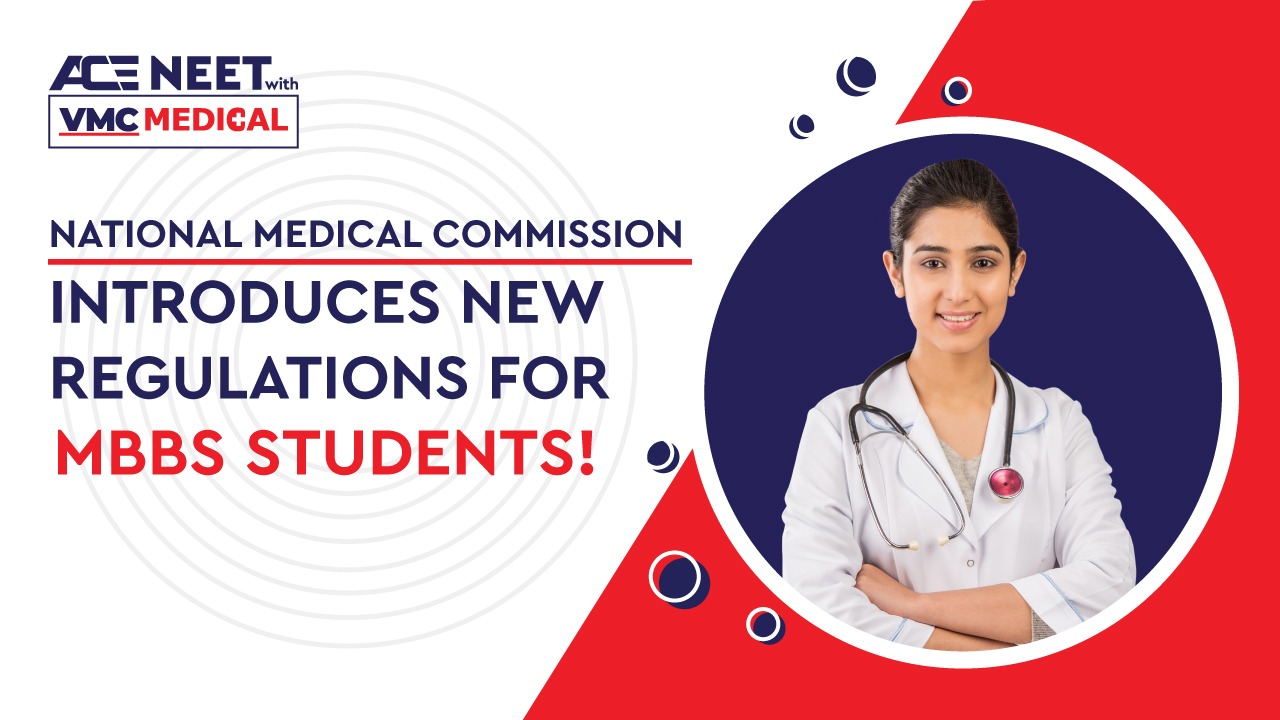Stricter Regulations for MBBS First-Year Exams: NMC’s New Guidelines!
 Posted On
Posted On
873 total views, 1 views today
In a significant move towards enhancing medical education standards, the National Medical Commission (NMC) has recently announced the Graduate Medical Education Regulations, 2023. These regulations introduce several transformative measures aimed at improving the quality and efficiency of MBBS programs in India. One of the key changes pertains to the number of attempts permitted for the first-year Professional exam, limiting it to a maximum of four attempts per student. Additionally, the NMC has imposed a time restriction of nine years for completing the undergraduate medical course from the date of enrollment. This blog delves into the details of these regulations and their potential impact on medical education.
Restrictions on First-Year Exams:
Under the new regulations, MBBS students will be allowed a maximum of four attempts for the first-year Professional test. This measure is intended to ensure that students are adequately prepared and motivated to pass their exams within a reasonable timeframe. By setting a limit on the number of attempts, the NMC aims to encourage students to focus on their studies and prioritize their academic progress.
Time Limit for Completing the Course:
According to the NMC, no student will be permitted to continue the undergraduate medical course beyond a period of nine years from the date of enrollment. This provision aims to streamline the duration of the program and ensure that students complete their studies in a timely manner. By enforcing this time limit, the NMC aims to prevent prolonged delays in graduation and promote a more efficient learning process.
Diversification of Curriculum:
In addition to the core curriculum mandated by the NMC and respective universities, medical institutions are now required to offer a range of choice-based credit courses of limited duration. These additional courses are intended to broaden the knowledge and skills of medical students, providing them with a more holistic educational experience. The meaningful imparting of these choice-based credit courses will also play a crucial role in the accreditation and rating of medical institutions by the Medical Assessment Agency.
Completion of Rotating Medical Internship:
The Compulsory Rotating Medical Internship Regulations, 2021 state that the graduation of a student enrolled in a Graduate Medical Education Program is contingent upon the completion of a rotating medical internship. This internship serves as a vital practical training period for students, allowing them to gain hands-on experience in various medical specialties. By ensuring the completion of this internship, the NMC aims to produce well-rounded and competent medical professionals.
Final Thoughts:
The new regulations introduced by the National Medical Commission mark a significant step forward in reforming medical education in India. By limiting the number of attempts for the first-year Professional exam and imposing a time restriction for completing the MBBS course, the NMC aims to promote academic rigor, discipline, and timely progression. Additionally, the inclusion of choice-based credit courses and the emphasis on completing the rotating medical internship further enhance the quality and practicality of medical education. These measures collectively strive to produce highly skilled and well-rounded medical professionals, thereby raising the standards of healthcare in the country. With these reforms in place, the future of medical education looks promising, promising a brighter and more efficient healthcare system for all.
